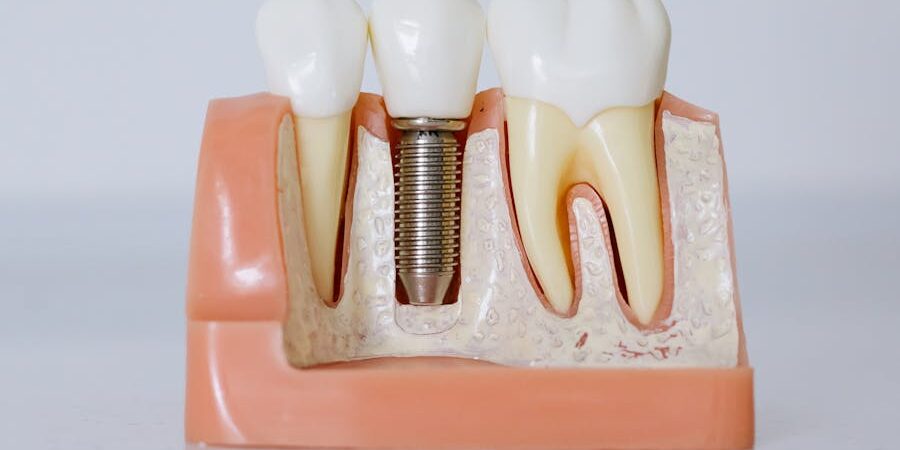When it comes to replacing missing teeth, two of the most common options are dental implants and traditional dentures. Both have their advantages, and the choice between them depends on various factors, including your oral health, lifestyle, and personal preferences. At Pristine Oral & Maxillofacial Surgery, led by Dr. Garry Shnayder, we are committed to helping you make an informed decision that best suits your needs and ensures long-term oral health.
Understanding Dental Implants
Dental implants are a modern solution for tooth replacement that involves surgically placing a titanium post into the jawbone. This post acts as an artificial root, which eventually fuses with the bone, providing a stable foundation for a custom-made crown that looks and functions like a natural tooth.
Key Benefits of Dental Implants:
- Natural Appearance and Functionality: Dental implants are designed to look, feel, and perform like natural teeth, allowing you to eat, speak, and smile with confidence.
- Longevity and Durability: With proper care, dental implants can last a lifetime, making them a long-term investment in your oral health.
- Preservation of Jawbone: Dental implants stimulate the jawbone, preventing the bone loss that often occurs with missing teeth.
- No Impact on Adjacent Teeth: Unlike bridges, implants do not require the alteration of adjacent healthy teeth, preserving your natural tooth structure.
Understanding Traditional Dentures
Traditional dentures are removable prosthetic devices designed to replace missing teeth. They are custom-made to fit your mouth and can be either full (replacing all teeth in the upper or lower jaw) or partial (replacing a few missing teeth).
Key Benefits of Traditional Dentures:
- Non-Surgical Option: Dentures do not require surgery, making them a less invasive option for tooth replacement.
- Affordability: Dentures are generally less expensive upfront compared to dental implants, making them a more affordable option for some patients.
- Adaptable: Dentures can be adjusted or replaced relatively easily if there are changes in your mouth or if the dentures become worn.
Dental Implants vs. Traditional Dentures: A Comparative Overview
Choosing between dental implants and traditional dentures involves weighing the benefits and potential drawbacks of each option. Here’s a comparative overview to help guide your decision:
- Stability and Comfort:
- Dental Implants: Implants are anchored securely in the jawbone, providing superior stability and comfort. They do not slip or shift, offering a natural feel and the ability to eat most foods without restriction.
- Traditional Dentures: Dentures rest on the gums and may require adhesive to stay in place. They can sometimes slip or cause discomfort, especially during eating or speaking.
- Oral Health Impact:
- Dental Implants: By integrating with the jawbone, implants help maintain bone density and prevent bone loss, which is crucial for preserving facial structure.
- Traditional Dentures: Dentures do not stimulate the jawbone, which can lead to bone loss over time and changes in facial appearance.
- Maintenance and Care:
- Dental Implants: Implants require the same care as natural teeth—regular brushing, flossing, and dental check-ups.
- Traditional Dentures: Dentures require daily removal for cleaning and soaking. Over time, they may need adjustments or replacements as the shape of your gums and jaw changes.
- Longevity:
- Dental Implants: With proper care, implants can last a lifetime, providing a durable and permanent solution.
- Traditional Dentures: Dentures typically need to be replaced every 5-8 years due to wear and changes in the mouth.
- Cost:
- Dental Implants: While implants have a higher upfront cost, they offer long-term savings due to their durability and minimal maintenance needs.
- Traditional Dentures: Dentures are less expensive initially but may incur ongoing costs for adjustments, replacements, and denture adhesives.
Which Option Is Right for You?
The choice between dental implants and traditional dentures depends on your individual circumstances. Here are some factors to consider:
- Overall Health: Dental implants require sufficient bone density and healthy gums for successful placement. If you have conditions that affect healing, such as diabetes, implants may require additional consideration.
- Lifestyle and Preferences: If you prefer a permanent, low-maintenance solution that closely mimics natural teeth, dental implants may be the better option. However, if you’re looking for a non-surgical, more affordable option, traditional dentures might be suitable.
- Budget Considerations: While dental implants are more expensive upfront, their long-term benefits can outweigh the initial costs. Dentures offer a more affordable entry point but may require more frequent replacements and maintenance.
Bullet Point Benefits of Dental Implants:
- Permanent and Durable: Offers a long-term solution with proper care.
- Natural Look and Feel: Closely mimics natural teeth in appearance and function.
- Supports Jawbone Health: Prevents bone loss and maintains facial structure.
- Minimal Maintenance: Requires only routine dental care.
Bullet Point Benefits of Traditional Dentures:
- Non-Invasive: No surgery required.
- Cost-Effective: Lower initial cost compared to implants.
- Easily Adjustable: Can be modified or replaced as needed.
Why Choose Pristine Oral & Maxillofacial Surgery?
At Pristine Oral & Maxillofacial Surgery, we understand that every patient is unique, and there’s no one-size-fits-all solution. Dr. Garry Shnayder and our team are dedicated to helping you make an informed decision based on your specific needs and goals. Whether you opt for dental implants or traditional dentures, you can trust that you will receive expert care and support throughout the process.
Schedule Your Consultation Today
If you’re considering tooth replacement options, contact Pristine Oral & Maxillofacial Surgery today to schedule a consultation. Dr. Shnayder will assess your oral health, discuss your goals, and help you choose the best solution for a healthy, confident smile.







